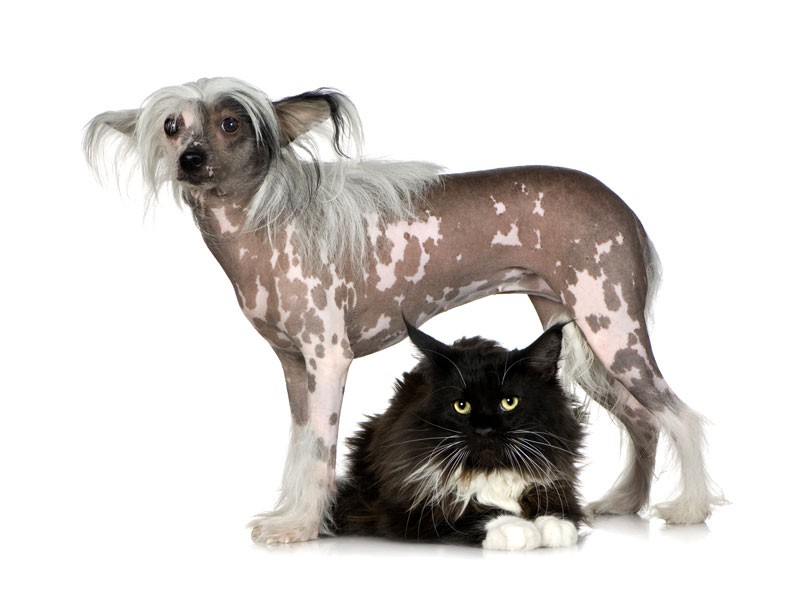Can you picture the iconic 1970s images of the Marlboro man? Can you picture panoramic views of wide-open prairies, blue skies and a rugged cowboy perched atop his trusty steed?
Well, chances are that horse was coughing in the background.
This might sound melodramatic, but studies find that secondhand smoke not only increases the risk of cancer, heart disease and other illnesses in humans, but it can also kill pets, too. An increasing body of research shows that pets are prone to cancer, asthma and nicotine poisoning when exposed.
Surprisingly, when pet owners are made aware of these harmful side effects, they’re more likely to quit smoking. According to a 2009 report by Tobacco Control, smokers would rather give up the habit for their pet’s health than their own.
Almost 30 percent of those surveyed claimed they would consider quitting after learning that secondhand smoke posed a danger to their pet, and one-in-five said they would ban smoking in their homes altogether.
In an attempt to reach a unique demographic of smokers, the Spokane Regional Health District and local veterinarians are teaming together to create a campaign revolving around Fido.
“We’re kind of struggling with the final group of smokers,” says Julie Scholer, tobacco control coordinator with the Spokane Regional Health District.
According to the Health District, almost 15 percent of the population in Washington state smokes. In Spokane, 19 percent of adults smoke.
“Smokers usually want to quit, but they just don’t know how,” she says. “It’s always a struggle, it’s always going to be a struggle, but we’re here to show them one more motivator. That’s their pets.”
Scholer is working with the Inland Northwest Veterinarian Association and SCRAPS to put together a campaign sometime this fall, potentially targeted around the Great American Smokeout. Similar smoke-free pet campaigns have been launched in New Hampshire and Utah, but this will be the first attempt in Washington state.
The idea came to Scholer while working to create smoke-free living spaces with Spokane Housing Authority and Spokane Catholic Charities. During the tenant meetings, Scholer says people would raise complaints, ask questions and almost always bring their pets.
“People who said they could never quit smoking — even one woman who called us Nazis for coming in there — were just enthralled with the information about secondhand smoke and their pets,” she says. “It’s just one more piece of the puzzle to raise awareness.”
In order to drive the point home, Scholer says smokers need to receive the same consistent message.
“Smokers need to hear it from their doctor, their friends, their dentist, and now their veterinarians,” she says. “When you start getting everyone on the same message, it helps support that environment of change.”
Brian Hunter says epidemiology studies are difficult to examine in pets, but there is a relationship between smoking and animal health. Hunter has been a veterinarian for more than 30 years at Hunter Veterinary Clinic — a practice passed down from his father.
He works primarily with dogs and cats, but he is also the veterinarian for Cat Tales. He says tobacco and animal health studies have been around for more than a decade, and although they lack funding, they’re becoming increasingly relevant.
“People see their pet as an important family member as much as they would a child or a spouse,” he says. “That’s a huge shift from when I first started my practice. Dogs used to live in the backyard. Now they sleep on our beds.
“Nowadays people are more interested in ways to reduce health risks on their pets.”
Hunter points to studies from the American Veterinary Medical Association, the American Journal of Epidemiology, and the Queen Mother Hospital for Animals that show passive relationships between secondhand smoke and pets.
Studies find that cats can develop respiratory problems, lung inflammation, lymphoma and asthma as a result of secondhand smoke. Exposed cats also have higher rates of oral cancers, which are largely attributed to grooming behaviors in which cats directly ingest the poisons that have settled in their fur.
Several studies found that birds are prone to eye problems and respiratory problems when exposed to cigarette smoke. Nicotine is poisonous if consumed by dogs — only two cigarette butts can be lethal to a puppy — and Hunter says he treats several poisonings per year.
“As a general rule of thumb, I recommend that owners don’t smoke around their pets,” Hunter says. “And in the same sense that you poison-proof your home for children, I recommend that you do that for your pets.”
In addition to consumption complications, dogs that have inhaled secondhand smoke are three times more likely to develop lung or nasal cancer than dogs in smoke-free homes. And dogs with long noses are more likely to develop nasal cancer, while dogs with shorter noses are more likely to get lung cancer.
In light of these findings, Hunter says he hopes fellow veterinarians will continue to spread the message.
“This is an important campaign in that it makes people more aware that smoking affects not just themselves and other people around them but their pets.”
















